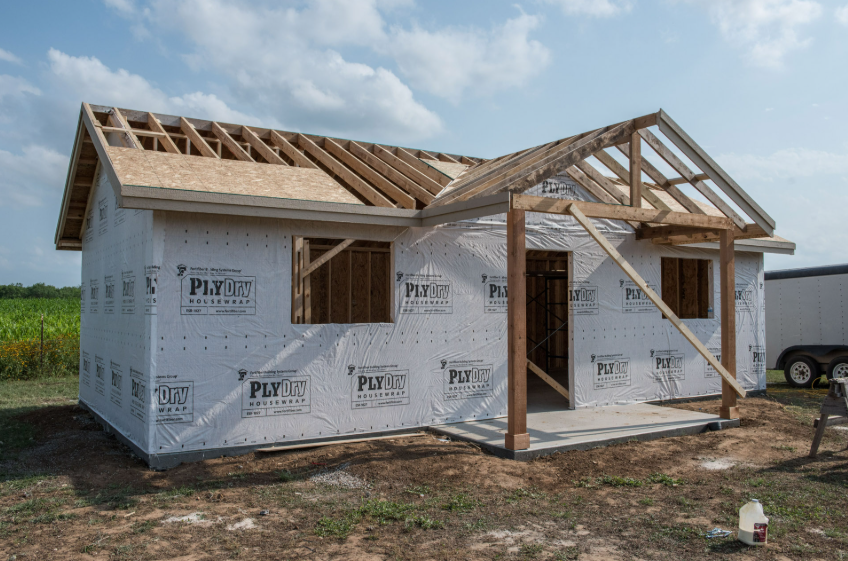Warehouse Snow Removal Services - Rhode Island
Rhode Island warehouses must maintain 24/7 operational access by clearing loading docks, truck routes, and employee parking within 2-4 hours after snowfall ends. Industrial facilities face supply chain disruptions costing $10,000-$50,000 per day during weather closures, with professional warehouse snow removal services averaging $5,000-$25,000 annually versus potential shipping delays and inventory losses.
Warehouse Snow Removal for Rhode Island Operations
Supply Chain Continuity and Operational Efficiency
Time-Sensitive Logistics Operations
- Just-in-time inventory: Modern warehouses operate with minimal buffer stock requiring uninterrupted deliveries
- 24/7 distribution cycles: E-commerce fulfillment and retail distribution cannot accommodate weather delays
- Cross-docking operations: Time-critical transfer between inbound and outbound shipments
- Cold chain logistics: Temperature-sensitive products requiring continuous facility access
- International shipping deadlines: Port connections and customs clearance timing dependencies
Critical Access Points Requiring Priority Clearing
- Loading dock bays: 20-50+ truck bays requiring simultaneous access for logistics efficiency
- Truck circulation routes: Wide-turn radius requirements for 53-foot trailers and container deliveries
- Employee parking areas: Shift worker access for round-the-clock warehouse operations
- Administrative office entrances: Management and customer service staff accessibility
- Emergency exits and safety routes: OSHA compliance and fire department access requirements
Economic Impact of Warehouse Weather Closures
Daily Operational Loss Analysis
- Small warehouses (50,000-100,000 sq ft): $8,000-$15,000 daily revenue loss during closures
- Medium distribution centers (100,000-300,000 sq ft): $15,000-$35,000 daily operational disruption costs
- Large fulfillment centers (300,000+ sq ft): $35,000-$100,000+ daily supply chain interruption impact
- Specialty cold storage: $20,000-$75,000 daily loss from temperature-sensitive product spoilage
- Customer penalty clauses: Contractual late delivery fees ranging $5,000-$50,000 per incident
Rhode Island Warehouse Snow Removal Requirements
Major Industrial Parks and Distribution Centers
Quonset Business Park and Port Operations
- Marine terminal integration: Port access coordination for international shipping containers
- Heavy industrial equipment: Specialized snow removal accommodating crane operations and container movement
- 24/7 port operations: Continuous access requirements for shipping schedule compliance
- Multi-modal transportation: Truck, rail, and ship cargo transfer facility accessibility
- Federal maritime security: Enhanced clearance standards for port-adjacent warehouse facilities
Providence Industrial Corridor (I-95/Route 6)
- Interstate highway access: Priority clearing for national distribution network connectivity
- Amazon and major retailer fulfillment: E-commerce distribution center rapid response requirements
- Cross-state logistics: Connecticut and Massachusetts supply chain integration accessibility
- Intermodal rail facilities: Freight train coordination and container transfer operations
- Hazardous material storage: Enhanced safety protocols for chemical and industrial product warehouses
Warwick Industrial District
- T.F. Green Airport cargo: Air freight logistics and overnight delivery service coordination
- Medical device distribution: FDA-regulated product storage and distribution facility access
- Food service distribution: Restaurant and grocery supply chain time-sensitive operations
- Regional retail distribution: Department store and specialty retailer warehouse operations
- Manufacturing support: Just-in-time parts delivery for Rhode Island manufacturing facilities
Johnston and Cranston Warehouse Concentrations
Hartford Avenue Industrial Corridor
- Manufacturing integration: Parts and materials delivery for local production facilities
- Regional distribution hubs: New England supply chain consolidation and transfer operations
- Trucking company terminals: Fleet maintenance and dispatch facility accessibility
- Construction material storage: Building supply and contractor material distribution centers
- Automotive parts distribution: Time-critical delivery for dealership and repair facility networks
Industrial Highway and Route 37 Complex
- Bulk material handling: Sand, salt, aggregate, and construction material storage facilities
- Waste management operations: Recycling and disposal facility accessibility for municipal services
- Energy distribution: Heating oil, propane, and fuel distribution terminal operations
- Agricultural supply: Feed, seed, and farming supply distribution for Rhode Island agriculture
- Chemical and industrial supply: Specialized material handling and hazardous product storage
Warehouse Snow Removal Operational Challenges
Large-Scale Facility Management
Massive Parking and Circulation Areas
- Employee parking lots: 200-1,000+ parking spaces for multi-shift warehouse operations
- Truck trailer storage: Dedicated areas for overnight trailer parking and staging
- Container storage yards: Import/export container temporary storage and organization areas
- Equipment staging areas: Forklift, reach truck, and material handling equipment parking
- Visitor and vendor parking: Sales representative, inspector, and service technician accommodation
Loading Dock and Bay Management
- Dock leveler protection: Snow and ice prevention for hydraulic loading equipment
- Truck positioning accuracy: Precise alignment requirements for automated loading systems
- Door seal integrity: Weather protection preventing product damage and energy loss
- Safety zone clearance: OSHA-required clear areas around loading dock operations
- Multi-bay coordination: Simultaneous truck loading/unloading operations during storms
Heavy Equipment and Vehicle Accommodation
Specialized Vehicle Access Requirements
- 53-foot tractor-trailers: Wide turning radius and backup space requirements
- Double trailer combinations: Extended vehicle length accommodation and maneuvering areas
- Container delivery trucks: Specialized equipment for 20-foot and 40-foot shipping containers
- Crane and heavy lift equipment: Overhead clearance and ground stability for specialized loads
- Emergency response vehicles: Fire department ladder truck and ambulance accessibility
Material Handling Equipment Considerations
- Forklift and reach truck operation: Clear pathways for internal material movement
- Conveyor system access: Maintenance and repair accessibility during weather events
- Automated storage systems: Climate-controlled equipment requiring environmental protection
- Loading dock equipment: Hydraulic systems and mechanical components weather protection
- Safety equipment stations: Emergency shower, eye wash, and safety equipment accessibility
Rhode Island Industrial Facility Snow Requirements
E-commerce and Fulfillment Centers
Amazon and Major Retailer Distribution
- Peak season operations: Holiday shipping demands requiring enhanced winter accessibility
- Same-day and next-day delivery: Customer service level agreements preventing weather delays
- Returns processing: Reverse logistics operations requiring continuous facility access
- Inventory receiving: Vendor shipment scheduling and time-sensitive product storage
- Cross-docking efficiency: Minimizing inventory storage time through rapid transfer operations
Third-Party Logistics (3PL) Providers
- Multi-client operations: Diverse customer requirements demanding operational flexibility
- Value-added services: Assembly, packaging, and customization operations requiring staff access
- Inventory management: Real-time stock tracking and order fulfillment accuracy requirements
- Transportation coordination: Multiple carrier coordination and dispatch operations
- Quality control processes: Product inspection and testing requiring uninterrupted operations
Food and Cold Storage Warehouses
Temperature-Controlled Facility Operations
- Cold chain integrity: Continuous refrigeration system operation and maintenance access
- HACCP compliance: Food safety protocol maintenance requiring staff and inspector access
- Inventory rotation: First-in-first-out systems preventing product spoilage during delays
- Transportation refrigeration: Reefer trailer connections and temperature monitoring systems
- Emergency response: Rapid access for refrigeration system failures and power outages
Food Service Distribution Centers
- Restaurant supply chains: Daily delivery schedules for perishable food products
- Grocery distribution: Retail store restocking operations requiring schedule compliance
- Specialty food handling: Organic, kosher, and allergen-free product segregation and handling
- Inspection accessibility: Health department and food safety inspector facility access
- Waste management: Food waste and packaging material disposal and recycling operations
Manufacturing Support and Parts Distribution
Automotive and Industrial Parts Warehouses
- Production line support: Just-in-time delivery preventing manufacturing shutdowns
- Emergency parts delivery: Critical component availability for equipment repairs
- Quality control testing: Parts inspection and certification processes requiring facility access
- Vendor coordination: Supplier delivery scheduling and inventory replenishment operations
- Export operations: International shipping deadlines and customs processing requirements
Medical Device and Pharmaceutical Distribution
- FDA regulatory compliance: Controlled substance and medical device storage security requirements
- Clean room environments: Sterile product handling and packaging operations
- Temperature and humidity control: Climate-sensitive product storage and handling
- Traceability requirements: Lot tracking and recall capability requiring database access
- Emergency medical supply: Hospital and pharmacy critical supply delivery operations
Professional vs. In-House Warehouse Snow Removal
Professional Snow Removal Service Benefits
Industrial-Scale Equipment and Expertise
- Heavy-duty snow plows: Commercial equipment designed for large warehouse facility clearing
- Bulk material handling: Salt and ice melt application systems for extensive pavement areas
- 24/7 availability: Round-the-clock response matching warehouse operational schedules
- Equipment redundancy: Backup systems preventing service interruption during critical operations
- Specialized training: Industrial facility safety protocols and operational area priorities
Cost-Effectiveness for Warehouse Operations
- Predictable seasonal costs: Fixed-price contracts enabling accurate budget planning
- Liability insurance transfer: Professional coverage protecting warehouse owners from slip-and-fall claims
- Maintenance elimination: No equipment purchase, storage, or repair costs
- Staff productivity: Warehouse employees focused on core operations rather than snow removal
- Regulatory compliance: Professional knowledge of OSHA and municipal requirements
In-House Snow Removal Challenges for Warehouses
Equipment Investment and Maintenance
- Industrial plow trucks: $75,000-$150,000 investment for warehouse-scale equipment
- Material storage: Bulk salt and ice melt storage facilities and inventory management
- Equipment maintenance: Seasonal servicing, repairs, and replacement part inventory
- Operator training: CDL licensing, equipment operation, and industrial safety certification
- Insurance coverage: Additional liability and equipment coverage increasing operational costs
Operational Disruption and Risk
- Staff availability: Equipment operators during storm events affecting core warehouse operations
- Equipment failure: Mechanical breakdowns during critical storm periods
- Material procurement: Emergency supply acquisition during severe weather events
- Safety liability: Employee injury risks during snow removal operations
- Regulatory compliance: OSHA and municipal ordinance adherence responsibility
Rhode Island Weather Patterns and Warehouse Impact
Seasonal Operational Planning for Industrial Facilities
Winter Weather Supply Chain Disruptions
- Storm frequency: Rhode Island averages 8-12 significant snow events affecting warehouse operations
- Peak season overlap: November-February winter weather coinciding with holiday shipping demands
- Regional transportation: I-95 corridor closures affecting multi-state distribution networks
- Port operations: Weather impact on Quonset Point and Port of Providence cargo operations
- Airport cargo: T.F. Green freight operations and overnight delivery service disruptions
Climate Considerations for Warehouse Planning
- Temperature fluctuations: Freeze-thaw cycles affecting loading dock operations and equipment
- Coastal weather patterns: Maritime influence creating unpredictable storm intensification
- Ice storm frequency: Increasing freezing rain events requiring specialized treatment methods
- Wind and drifting: Open warehouse areas creating snow accumulation and visibility challenges
- Extended cold periods: Prolonged freezing affecting equipment operation and material handling
Regional Logistics Network Integration
Interstate Commerce Considerations
- Massachusetts border facilities: Coordination with Boston-area distribution networks
- Connecticut logistics integration: I-95 corridor supply chain connectivity requirements
- New York market access: Regional distribution serving tri-state area customer base
- Northern New England delivery: Vermont and New Hampshire distribution route accessibility
- Maritime shipping: International cargo operations through Providence and Newport ports
OSHA and Safety Compliance for Warehouse Snow
Federal Safety Requirements for Industrial Facilities
Occupational Safety and Health Administration Standards
- Walking and working surfaces: Slip and fall prevention in warehouse environments
- Emergency egress: Unobstructed exit routes during all weather conditions
- Personal protective equipment: Winter weather safety gear for outdoor operations
- Material handling safety: Forklift and equipment operation during adverse conditions
- Hazard communication: Weather-related safety alerts and employee training requirements
Risk Management and Documentation
- Safety inspection protocols: Regular assessment of weather-related hazards
- Incident reporting: OSHA recordkeeping for weather-related injuries and accidents
- Training documentation: Employee education on winter weather safety procedures
- Emergency response plans: Severe weather evacuation and safety protocols
- Insurance compliance: Workers' compensation and liability coverage for weather operations
Employee Safety and Accessibility
Shift Worker Protection
- Parking lot safety: Employee vehicle access during all shifts and weather conditions
- Pedestrian walkways: Safe pathways from parking areas to facility entrances
- Lighting adequacy: Enhanced visibility during winter months and storm conditions
- Emergency procedures: Weather-related evacuation and emergency response protocols
- Communication systems: Real-time weather updates and facility status notifications
RI Industrial Insurance and Risk Management
Warehouse-Specific Insurance Requirements
Property and Operational Coverage
- Business interruption: Revenue protection during weather-related facility closures
- Inventory protection: Product damage from roof leaks, heating failures, and weather infiltration
- Equipment coverage: Material handling equipment and facility systems weather damage protection
- Liability insurance: Slip-and-fall and premises liability for employees, vendors, and visitors
- Supply chain disruption: Coverage for customer penalty clauses and contractual obligations
Risk Mitigation Strategies
- Preventive maintenance: Roof, heating, and structural systems preparation for winter weather
- Emergency planning: Business continuity protocols for extended weather events
- Vendor agreements: Service level commitments with critical suppliers and customers
- Documentation systems: Incident tracking and compliance reporting for insurance protection
- Professional consultation: Risk management expertise for warehouse-specific winter challenges
Cost-Benefit Analysis for Professional Snow Services
Direct Cost Comparison
- Professional service investment: $8,000-$25,000 annual contract vs. $100,000+ equipment investment
- Operational continuity value: Preventing $15,000-$50,000 daily closure costs
- Insurance savings: Reduced premiums through professional liability transfer
- Productivity protection: Staff focused on core warehouse operations rather than facility maintenance
- Customer retention: Service level maintenance preventing client relationship damage
Economic Impact of Warehouse Snow Management
Rhode Island Industrial Sector Benefits
Statewide Supply Chain Reliability
- Manufacturing support: Uninterrupted parts and materials delivery for Rhode Island manufacturers
- Retail distribution: Consumer goods availability in stores throughout severe weather
- Healthcare logistics: Medical supply and pharmaceutical distribution continuity
- Food security: Grocery and restaurant supply chain reliability during winter months
- Economic development: Competitive advantage attracting logistics companies to Rhode Island
Employment and Workforce Considerations
- Job protection: Warehouse employment stability through operational continuity
- Shift worker accommodation: Multi-shift operations requiring year-round accessibility
- Seasonal employment: Holiday and peak season workforce requiring facility access
- Training and development: Workforce skill development through consistent operations
- Career advancement: Management and supervisory opportunities in reliable facilities
Competitive Advantage Through Superior Winter Operations
Customer Service Differentiation
- Delivery reliability: Consistent service levels during adverse weather conditions
- Supply chain partnerships: Preferred vendor status through operational dependability
- Emergency response capability: Critical supply delivery during regional emergencies
- Quality maintenance: Product integrity through climate-controlled environment protection
- Cost efficiency: Operational savings through reduced weather-related disruptions
Professional Warehouse Snow Removal in Rhode Island
Industrial warehouse operations require specialized snow removal services that understand the critical nature of supply chain continuity, 24/7 operational access, and the complex logistics of modern distribution facilities. Rockhouse Construction provides comprehensive warehouse snow management services specifically designed for Rhode Island's industrial facilities, from small distribution centers to major e-commerce fulfillment operations.
Our industrial-focused services include loading dock priority clearing, truck circulation route maintenance, employee parking accessibility, heavy equipment accommodation, and coordinated logistics with your operational schedule. Don't let snow and ice disrupt your supply chain, cost you customer relationships, or create safety hazards for your workforce.
Contact us today
to discuss how our specialized warehouse snow removal services can keep your Rhode Island industrial operation running efficiently and safely throughout the winter season.











